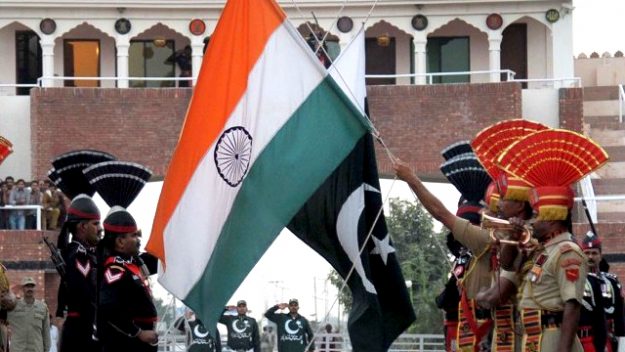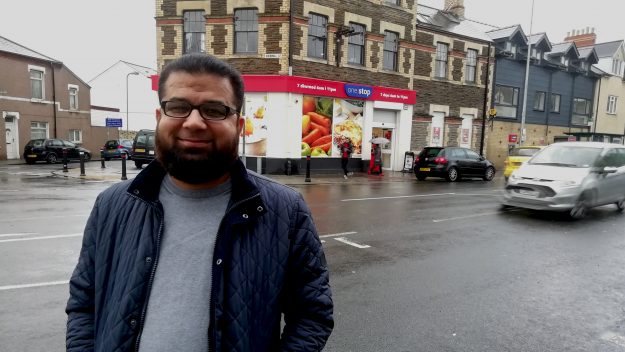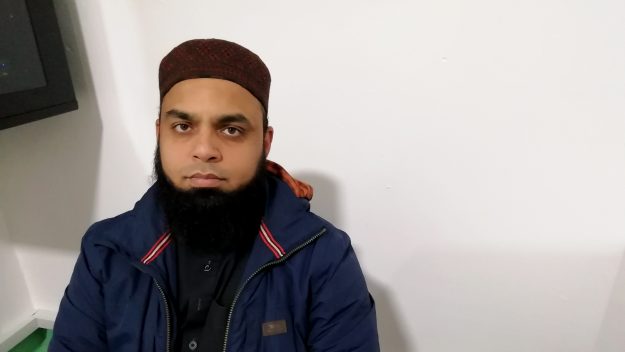In the light of the recent Indo-Pak crisis, nationals of both countries in Cardiff urge their governments to resolve differences through dialogue.

Warmongering is high in Pakistan and India after the recent aerial battle on 27 February, 2019, but their nationals in Cardiff are calling for peace through dialogue to achieve stability in South Asia and a resolution of the long-standing Kashmir dispute.
The entire episode of the aerial dogfight between Pakistan and India that led to the downing of two Indian warplanes, followed by the brief imprisonment of an Indian pilot Wing Commander Abhinandan Varthaman and his subsequent release, was worrisome for Mubashar Khan Swati, a local businessman from Cardiff.

“My family back in the Shah Kot city of Punjab province of Pakistan is very concerned the way this entire situation is unfolding. I am worried for their safety because if these turn of events lead to an all-out war, it could be catastrophic,” said Swati, who is a Pakistani national and chairman of the Pakistan Forum South Wales.
When asked if these aerial skirmishes have affected his relations with his Indian friends, he said, “We in Cardiff do not argue on any of the controversial issues, rather we discuss on how to sort them out. However after the recent skirmishes, we did have constructive discussions on how to address issues that are impinging peace in South Asia, including Kashmir.”
“Sadly, three wars were fought for Kashmir and I strongly feel that both countries should resolve the Kashmir issue through dialogue, while considering the aspirations of its people,” he added.
Pakistan Forum South Wales is an NGO to assist the Pakistani communities in the region in addressing their issues in the UK and in Pakistan.
“One of the reasons that Pakistanis and Indians in Cardiff live in such harmony is because we do not show chauvinism on any issue, as it can be counterproductive,” said Swati. He also showed disappointment on how social media was used by war propagandists in an effort to intensify hostilities in India and Pakistan, which could have escalated into a wider conflict.
This is the most hilarious thing I watched today!!#SurgicalStrikes2 #RevengeForPulwama#TaubaTauba pic.twitter.com/xeiYW5lr6j
— Rohit Sahni (@rohitsahni33) February 26, 2019
A Pakistani journalist criticising India for stopping tomato trade in the aftermath of current scenario and responding the move with a nuclear attack
https://twitter.com/Mahesh32524941/status/1100372689963737088
Indian media airs false claims that the air strikes by Indian warplanes killed 200-300 terrorists in Pakistan on 26 February. This information was widely circulated on social media
Another Pakistani in Cardiff, Hamza Butt who studies at Cardiff University shared similar views on the issue. “We can choose our friends but not neighbors. We must learn how to peacefully coexist, as we have gained nothing after decades of hostility and the recent chain of events could lead to something catastrophic, as both countries have nuclear weapons.”
Hamza who is from Islamabad, the capital city of Pakistan, told how his family is deeply worried as everyone fears that a war is now imminent. “People are stocking essential items in their homes and watching TV and following social media closely with a fear that an announcement of war might come any time soon.”
He also described his positive working relationship with Indian students at the university, who were also appalled by calls for greater escalation on social media. “My interaction with Indian friends hasn’t changed at all, in fact we have one voice and that is peace. We have also started to discuss on how to lead such initiatives back home that can help to bridge the gap between the people of Pakistan and India.”
“War is not the solution to anything, as a matter of fact peace is, and even the thorniest issue can be resolved on the table,” he said.
According to Kishore Gehlot, an Indian national living in Cardiff, “Both sides are silly, and they need to sit and talk.” He further said, “Both the countries are nuclear powers and have big armies. For a piece of land (referring to Kashmir), they are going to kill hundreds of thousands, if the situation worsens. I ask, is there even a need to go that far?”
For Gehlot, remembering a more peaceful time for the two countries is useful in looking towards the future. “Before the partition of 1947, India and Pakistan was one. Both loved each other and lived in harmony for centuries, and that occurred to nobody to have a country. Why cannot it go back that way?”
The role of Islamic centres in Cardiff is noteworthy when it comes to reducing India-Pakistan tensions. The Imam and chairman of Rabbania Islamic Centre Cardiff, Mufti Hussain Ahmad Rabbani, cautioned the warmongers that any misadventure can cause irreparable damage on both sides and called for restraint.

He said, “At the Islamic centre, I deliver the message of love and peace to the people of India and Pakistan and in this moment of crisis urge them to live in harmony like brothers. In fact I am happy that the Indians and Pakistanis coming to Rabbania Islamic Centre Cardiff are interacting in the same manner of love and respect, the way they have always been.”
“I am aware of the fact that both Indians and Pakistanis in Cardiff are worried for their families back home but everyone is optimistic that the situation will de-escalate and sanity will prevail.”
(function(d){var js, id=”pikto-embed-js”, ref=d.getElementsByTagName(“script”)[0];if (d.getElementById(id)) { return;}js=d.createElement(“script”); js.id=id; js.async=true;js.src=”https://create.piktochart.com/assets/embedding/embed.js”;ref.parentNode.insertBefore(js, ref);}(document));

